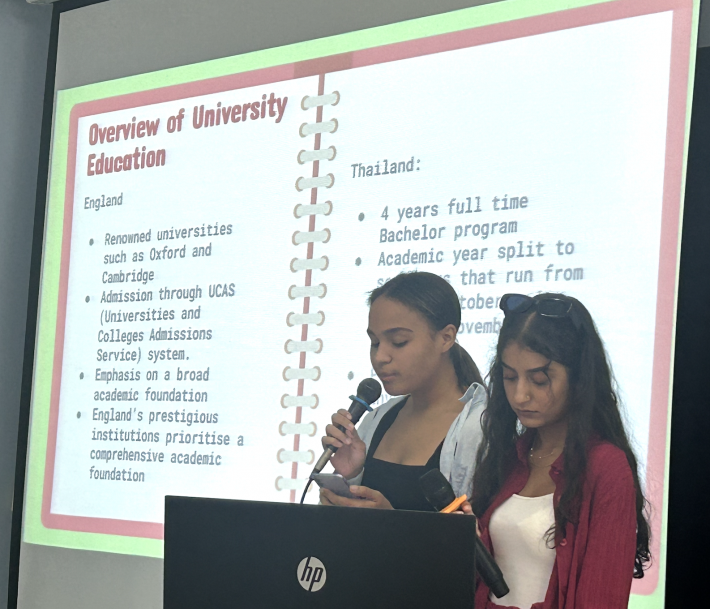A few days after the field trip to Thailand has ended, it’s good to take a step back and consider more what was learned during the field trip and the whole course and how it was cultivated in real-life experiences at the end of the course. So, this blog will focus on connecting the field trip experiences to different concepts and attributes discussed during the course.
The focus during class was learning, culture, and adaptation. All broad concepts, but they manifested themselves in different ways. One can take multiple positions to look at what students learned about the process or concept of learning. Before the field trip, a guest lecturer talked about different ways people can teach and learn. The students learned a lot in such an intense experience as travelling to the other side of the world. On an academic side, the comprehensive knowledge of Thailand is enriched with local teachers, guides and students educating students with first-hand accounts. The lessons learned from social situations were also valuable, as travelling with classmates to a new country is taxing and raises different obstacles. Lastly, there is the constant learning that no one is supporting per se.
What you observe, what you sense. All students can agree that their experience in Thailand could never have been compensated with anything happening in the classroom. The second identified topic of the course, culture, was also an important aspect. During one class, the guest lecturers talked about the diversity of culture. This is more apparent in Thailand than in many other countries. People were born and raised in the busy Bangkok city, versus just an hour away in the former capital Ayutthaya. Seemed to live very different lives, based on local accounts. Also, the culture of Thailand varies within social classes.
Even though being influenced during history by many other cultures, could one argue that Thai culture is one of the more distinctive and explicit cultures in the world, with influences in art, food, architecture, and more globally? The last key point to be discussed is adaptation. This would come to mean many things in Thailand. To be successful on the field trip, one had to adapt to more trivial things, such as the heat, the time difference, or the language barrier. However, the harder challenge lay in adapting to the culture, the social dynamic and with that different set of rules. To compare this to the classroom, we discussed adapting indigenous cultures to new Western technology in earlier classes. At the time, only a few students had personal experience of adapting to something totally foreign to you. However, in Thailand, many students need help not discussing specific controversial topics, as freedom of speech is heavily valued in the West. All the students in this course came out richer with this experience – only a guarantee a few other courses can offer.
Olivia Coker-Appiah
